by James Scott Bell
@jamesscottbell
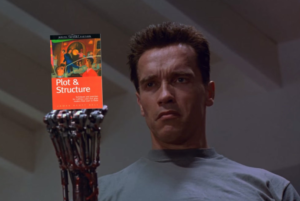 Recently, I received the following email: “As a fiction writer, I’m intrigued by the potential of ChatGPT in my writing process. I’d love to hear your advice on effectively using it. Your insights would be invaluable.”
Recently, I received the following email: “As a fiction writer, I’m intrigued by the potential of ChatGPT in my writing process. I’d love to hear your advice on effectively using it. Your insights would be invaluable.”
I’d love to be invaluable, but I don’t know yet what my advice would be. I’m still working it out. So I thought I’d open things up here at TKZ to help process the various issues. Which are many.
At the time of this writing, the bestselling writing book on Amazon is not Power Up Your Fiction (it’s #3), but a book on how to use ChatGPT for fiction. #2, by the same author, is a book of 500 prompts to feed the bot
Clearly, the concept of using AI as a fiction-writing tool is catching on, big time. I just saw a fancy, $300 video course being offered purporting to teach not the craft of writing, but the skill of prompting, with the promise of producing “amazing books” in “record time.” It warns that not fully embracing the world of AI means you’ll be “left behind” in the competitive marketplace.
Now, if you’ve played around with ChatGPT (and most of you have), you know it’s pretty amazing. And so, so fast. It’s like a personal, creative genie, with you at Aladdin’s keyboard. It can generate ideas, suggest plotlines, scenes, characters, even dialogue. It can offer you style suggestions and metaphors. It can even run over to Coffee Bean and pick you up a latté. (No, wait on that last one. I got carried away. But it will be here in time. Drones, anyone?) And it can produce the actual text you use in your actual book (the ethics of which are discussed below).
But as with any disruptive technology, there are potential problems.
As in the “tsunami of crap” that was once feared when self publishing became viable back in 2008. Imagine it now, when a bot can write a book in a matter of minutes, and uploaded to Amazon with the touch of a few keys. People are also touting AI’s ability to write book description and other marketing copy for you.
Then there is the plagiarism issue. What a bot comes up with may contain actual lines lifted from actual writers.
What about research? AI is certainly impressive, but it can also be wrong. And “opinionated.” What if what it reports as fact is really a mangling and shaping? What are the sources? Who fact checks the bot?
And then there’s copyright. As posed by the Congressional Research Service:
Assuming some AI-created works may be eligible for copyright protection, who owns that copyright? In general, the Copyright Act vests ownership “initially in the author or authors of the work.” Given the lack of judicial or Copyright Office decisions recognizing copyright in AI-created works to date, however, no clear rule has emerged identifying who the “author or authors” of these works could be.
And what about the humanity, oh, the humanity! If a bot writes all or the most of the book for you, are you still an author in the traditional sense of the word? Does that even matter?
The always prescient Joanna Penn has some observations:
The goal is to make every book resonate with your humanity even as you use AI tools as part of your creative and business processes.
***
AI tools can generate unlimited words in very little time, and never tire, never stop. But that doesn’t matter.
Your books are your ideas. Your prompts. Your curation. Your editing.
Your creative direction.
However you create — with or without AI tools — it’s more important than ever to find your voice and reach readers as one human connecting with another.
I do, however, see a personal cost. If I overuse AI for imaginative, generative work, I am not working my own brain cells on the same tasks. I believe imagination and cognition are “muscles” that slope toward atrophy when not being utilized. Atrophy, in advanced age, can become dementia. One reason to keep exercising the writing brain is to stay sharp and “rage, rage against the dying of the light” (h/t Dylan Thomas).
The art of writing is, in essence, your brain working to answer innumerable questions, such as:
- What if?
- Shall my Lead be a man or a woman? What are the advantages, disadvantages of either choice?
- What setting shall I use? Real? Made up?
- How should I end this scene so readers turn the page?
- What does the voice of my Lead sound like?
Let’s take the last one as an example. You can prompt ChatGPT to provide text in a voice with a certain background, or you can produce a Voice Journal to find it on your own. In the latter case, you’re working your own muscles. When you let AI do it for you, you’re not. And if your practice becomes prompt, prompt, prompt, prompt…with every choice and nuance…well, it’s the difference between training for, then running a 5k, and being driven around the track in a golf cart. What shape will you be in then? I’d be fearful of getting addicted. I mean, I’d love to sit and just watch movies with a never-ending cache of peanut M&Ms. But I don’t.
A major part of the reason I write is to keep my noggin working. If I make it to 100, I want to be healthy, sharp and outputting like Herman Wouk.
Now, I can see the value in using AI to suggest ways to go when your brain hits a cul-de-sac. Or coming up with ideas for a project. I kick around ideas with Mrs. B all the time, and there’s nothing artificial about her. I just wouldn’t want to get dependent on the ease of AI. I don’t want to meld with machine to the point where I’m like Keanu Reeves at the beginning of The Matrix.
What seems out of bounds is asking AI to generate actual text that you use on a page. Especially egregious would be to ask it to write “in the voice of” a favorite author, then passing it off as your own work.
Would it be any better if you made it clear on the cover and title page that you were assisted by AI? Like a James Patterson co-author? That’s an ethical question, but ethics is self-regulatory and there doesn’t seem to be a way to enforce that in the age of rampant mendacity in which we live.
Unless, of course, we get a visit from a Skynet terminator from the future.
So lots of questions without firm answers. That’s why I wanted to have this chat. How do you feel about these issues? How heavily are you using AI in your fiction writing? Any plans to do so? Are there any lines you won’t cross?



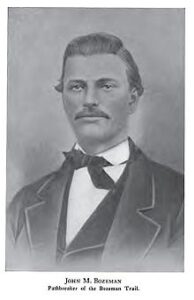
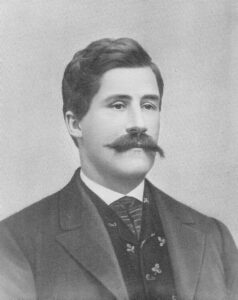








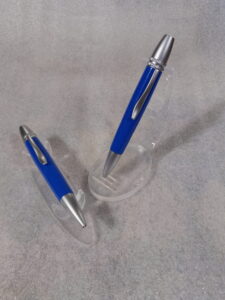

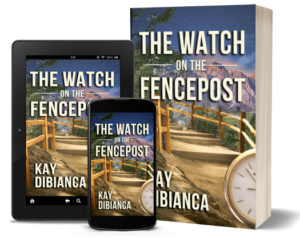
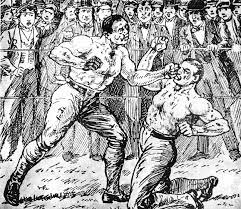 Matt Benson, a lefty, hit the massive Mexican, Juan Cortez, in the jaw with a hard right jab. Cortez’s eyelids fluttered and he took a few long steps backward on the hay-covered floor.
Matt Benson, a lefty, hit the massive Mexican, Juan Cortez, in the jaw with a hard right jab. Cortez’s eyelids fluttered and he took a few long steps backward on the hay-covered floor.
